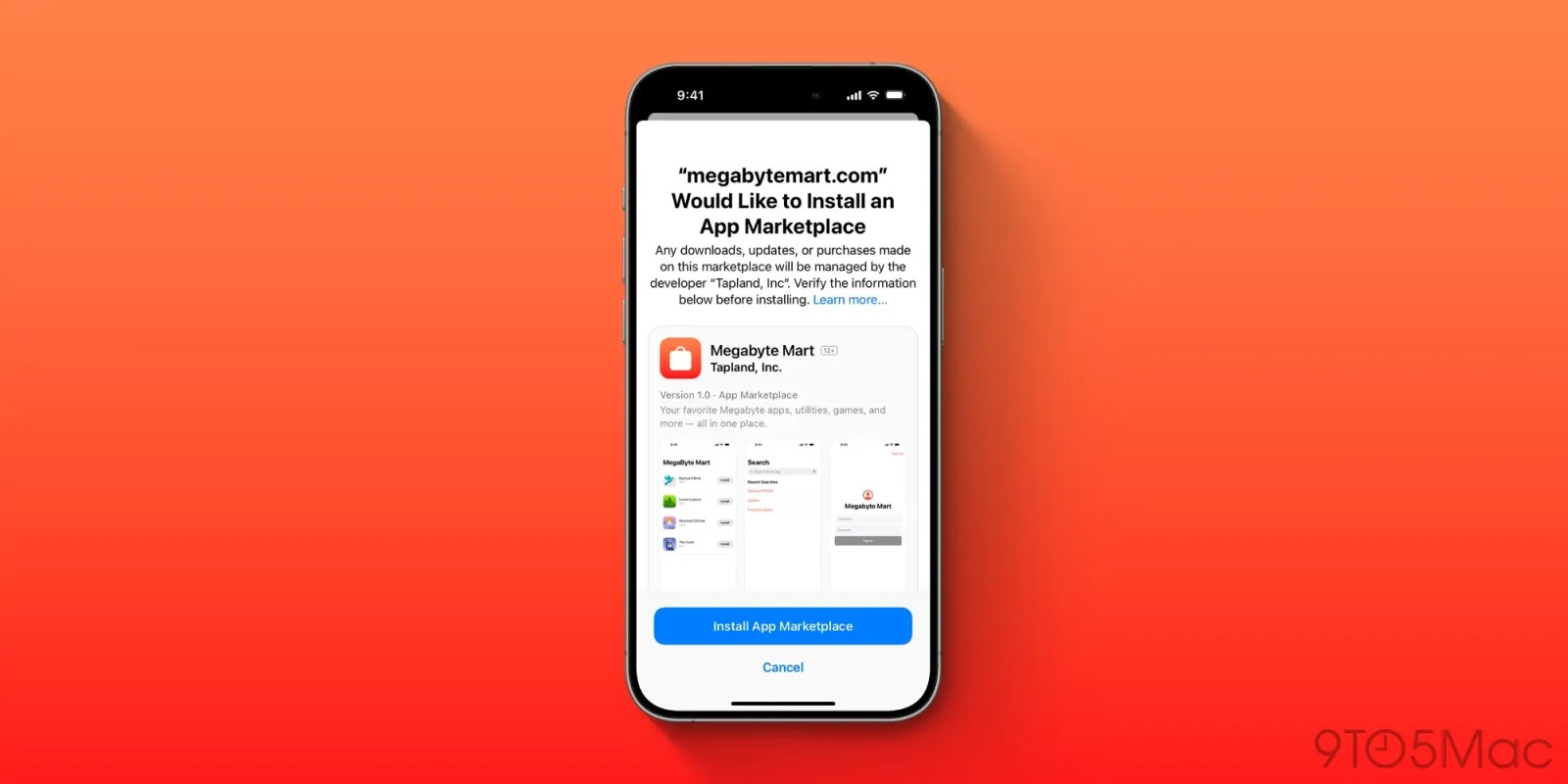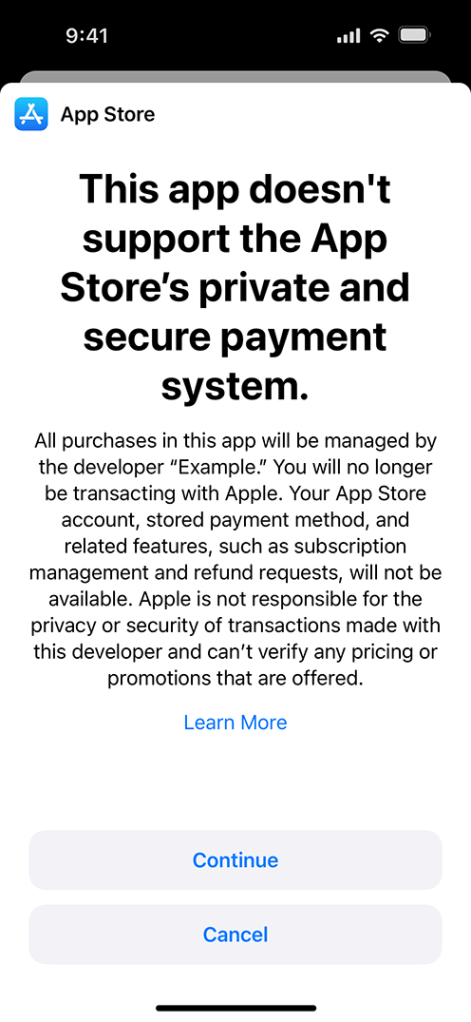
The first beta of iOS 17.4 is coming today, and it makes big changes to the iPhone, the App Store, and more in the European Union.
Starting with iOS 17.4, Apple is opening the iPhone to what it calls “alternative app marketplaces” for the first time. Apple says this will “enable developers to offer their iOS apps for download from alternative app marketplaces and help protect their intellectual property.”
Apple’s changes come ahead of the March 7 deadline for Apple to comply with the Digital Markets Act in the European Union. As such, these changes only apply to iPhone users in the European Union.
Links from Apple:
The headlining change in iOS 17.4 for users in the European Union is a new set of options for distributing iOS apps from alternative app marketplaces. This includes “new APIs and tools that enable developers to offer their iOS apps for download from alternative app marketplaces.”
This is essentially Apple opening the iPhone to third-party app stores for the first time. iPhone users will be able to download a new app store from a third party’s website. In order for that app store to be used on iPhone, it will have had to go through Apple’s approval process.

Every app, regardless of where and how it is distributed, will have to meet Notarization requirements. Through this process, apps will receive an installation key, go through a series of automated checks, and go through what Apple describes as a baseline human review. Apple outlines that Notarization will check for:
- Accuracy — Apps must accurately represent the developer, capabilities, and costs to users.
- Functionality — Binaries must be reviewable, free of serious bugs or crashes, and compatible with the current version of iOS. They cannot manipulate software or hardware in ways that negatively impact the user experience.
- Safety — Apps cannot promote physical harm of the user or public.
- Security — Apps cannot enable distribution of malware or of suspicious or unwanted software. They cannot download executable code, read outside of the container, or direct users to lower the security on their system or device. Also, apps must provide transparency and allow user consent to enable any party to access the system or device, or reconfigure the system or other software.
- Privacy — Apps cannot collect or transmit private, sensitive data without a user’s knowledge or in a manner contrary to the stated purpose of the software.
Apple further explains:
“Developers of alternative app marketplaces will be responsible for meeting ongoing requirements that help protect users and developers. Apple will provide authorized marketplace developers access to new app marketplace frameworks and APIs that let them receive and retrieve notarized apps from Apple Developer Program members securely, let users download and install marketplace apps from their website with authorized browsers, integrate with system functionality, back up and restore users’ apps, and more.
Using new App Store Connect distribution tools, developers can choose to notify you of any app updates, so you can offer users important functionality like automatic app updates.”
To make their app available on an alternative app marketplace, developers will need to contact the marketplace developer to “distribute your app, you’ll need to contact the marketplace developer to receive a security token required for alternative distribution.”
Then, using App Store Connect, developers will be able to add and remove marketplaces and select which apps they intend to distribute on each marketplace. A developer, for example, can choose to make their app available through one or multiple third-party app marketplaces and the App Store. They could also opt out of using the App Store entirely and distribute their app solely through third-party marketplaces.
Apple will charge a 0% commission for apps distributed outside the App Store.
The developers of the alternative app marketplaces have to pay a new Core Technology Fee of €0.50 per annual install, for the download of the alternative app store itself. For app marketplaces, the charge applies immediately — there is no 1 million free installations.
Changing your default app marketplace
Apple will allow users to customize and manage their allowed marketplace developers and marketplace apps in Settings. This includes setting a default marketplace, removing app marketplaces, and more.
“Removing an allowed marketplace developer prevents new apps and updates from the developer’s website from being installed,” Apple says. “Deleting a marketplace app deletes all related data from the device and stops updates for apps from that marketplace, which may affect features and functionality for the apps installed from the marketplace.”
More from Apple:
iOS 17.4 will support a new experience for app installation to help users authorize the installation of apps and alternative app marketplaces and understand more about apps before they download.
Users can install marketplace apps from a website owned by the marketplace developer after approving them with the Allow Marketplace from Developer control in Settings.
Before an app or marketplace app is installed, a new system sheet will display information developers have submitted to Apple for review, like the app name, developer name, app description, screenshots, and system age rating.
Users can manage their list of allowed marketplace developers and their marketplace apps in Settings and remove them at any time. Removing an allowed marketplace developer prevents new apps and updates from the developer’s website from being installed. Deleting a marketplace app deletes all related data from the device and stops updates for apps from that marketplace, which may affect features and functionality for the apps installed from the marketplace.
Users can manage their default marketplace through a new default setting. Certain platform features for finding and using apps like Spotlight are integrated with a user’s default marketplace. App installation sheets are automatically turned off for installations from a user’s default marketplace.
FTC: We use income earning auto affiliate links. More.




